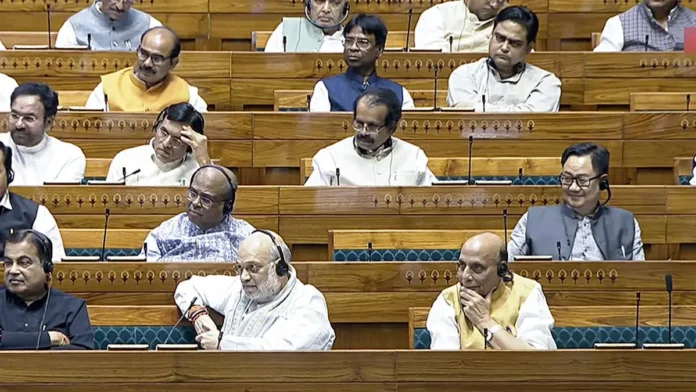New Delhi [India]: After a marathon 12-hour debate, the Parliament passed the Waqf Amendment Bill 2025 in the early hours of Friday, sparking intense reactions from both the ruling party and the opposition. The bill was approved in Rajya Sabha with 128 votes in favor and 95 against, following its passage in Lok Sabha earlier this week.
Opposition’s Criticism
🔹 Leader of Opposition Mallikarjun Kharge called the government’s approach “negative”, claiming that opposition concerns were disregarded.
🔹 Congress MP Ranjeet Ranjan labeled the bill as “unfortunate”, arguing that it targets a specific community and goes against constitutional principles.
🔹 TMC MP Sagarika Ghose described it as an “openly anti-constitutional bill”, accusing the government of bulldozing democracy.
Government’s Defense
🔹 Union Minority Affairs Minister Kiren Rijiju dismissed the opposition’s claims, stating that the bill aims to streamline waqf property management and will benefit millions in the Muslim community.
🔹 Rijiju also announced that the bill will be renamed as UMEED (Unified Waqf Management Empowerment Efficiency and Development) Bill.
🔹 The bill incorporates several recommendations from the Joint Parliamentary Committee, which examined its provisions.
Key Provisions of the Waqf Amendment Bill 2025
✔️ Enhances waqf property management and streamlines registration processes.
✔️ Increases transparency through technological integration in waqf record management.
✔️ Strengthens Waqf Boards to improve governance and prevent misuse of properties.
Despite the bill’s passage, the opposition remains vocal in its dissent, setting the stage for further political debates ahead of the 2025 general elections.


